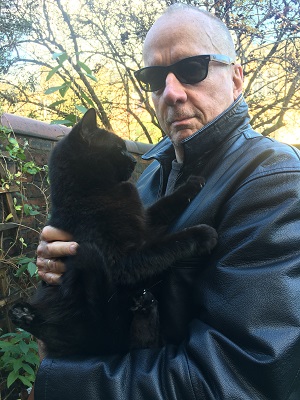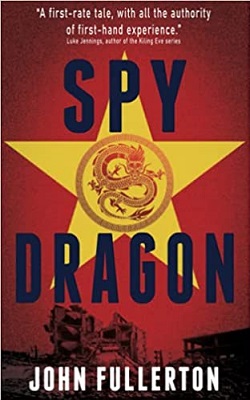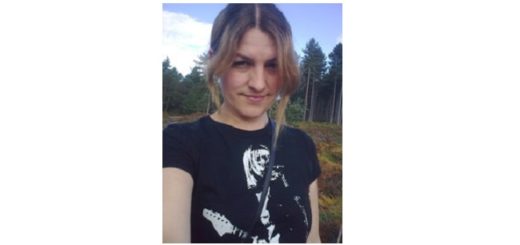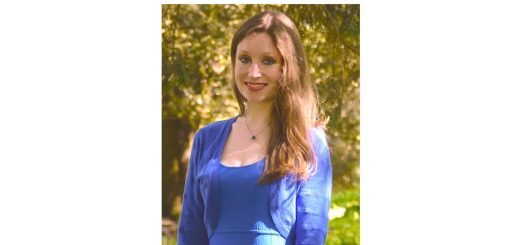The Writing Life of: John Fullerton
John Fullerton
This week I am thrilled to be interviewing author John Fullerton. John will be sharing with us details of his writing life, telling us all about his new book ‘Spy Dragon‘, which was released on 29th May 2021, and answering a few fun questions. This post contains affiliate links.

During the Cold War John Fullerton was, for a time, a ‘contract labourer’ for the UK’s Secret Intelligence Service, in the role of head agent on the Afghan-Pakistan frontier, an experience which formed the basis of the first Brodick novel, Spy Game. The events and characters of the second, Spy Dragon, were also informed by his time as Reuters bureau chief in Beirut during the Lebanon civil war.
Spy Trap, the final novel in the trilogy, is set mostly in Thailand and will be published in April, 2022.
All told, he’s lived or worked in 40 countries as a journalist and covered a dozen wars. For 20 years Fullerton was employed by Reuters as a correspondent and editor with postings in Hong Kong, Delhi, Beirut, Nicosia, Cairo, and London.
He lives in Scotland.
1) Did you enjoy writing when you were a child?
I started writing at my South African prep school where I was a boarder – they were one-act plays with a single actor that evolved into three-act, multi-actor performances. I wrote, directed, acted and produced. I’ve no doubt they were toe-curlingly dreadful, but no-one said so, and even the headmaster came to watch. They were also quite political.
2) Which author shaped your childhood?
So many, but the first was Arthur Conan Doyle. Boarding school was made tolerable with a weekly post-prandial mail delivery – on Thursdays – of comics, sent by my godmother Kaye, bless her. I loved the way they’d been wrapped, along with the smell of fresh newsprint. My mother disapproved.
During one holiday, she dragged me into a bookshop and told me I could have any book at all, so long as it had no pictures. I chose an immense hardback with a red cover, the complete Conan Doyle’s Adventures of Brigadier Gerard, a Napoleonic volume that had me spellbound, so much so I followed my mother around telling her each riveting episode – until she finally gave up and said I could have my comics if only I would stop badgering her.
3) What motivated you to begin your first novel?
I’d had a couple of six-week reporting jobs in Bosnia for Reuters, and I found it very hard to settle down again in the office as an editor. I disliked both the work, most of my colleagues (sorry, chaps!) and working at the Reuters HQ in London. I found it hard to adjust. On the one hand, I was relieved to be out of the firing line, but after a hot bath, a change of clothing, several drinks and a decent kip, I always became restless and wanted to go back. Thus I bashed out the first, The Monkey House. So in answer to your question, I suppose the answer is frustration and desperation.
4) Do you plot your book, or are you a pantser?
I have an idea. Then I have a character. Sometimes the character is the idea. I take it from there. The subconscious does most of the hard labour. I often wake up at night with ideas, even complete conversations. Or in the morning I wake up and something has reminded me I’ve left something out, or something else need cutting or adjusting.
5) What is your average writing day?
There’s no such thing as an average day. There are days when I write a lot, say 4-6 hours, or a little, or obsessively, every waking moment – and there are days when I don’t write at all. But I think about it ALL the time.
6) What is the best thing about being an author?
I don’t know – I’ve yet to find it. It’s certainly not money.
Brodick Cold War Thriller Book Two
Publisher – Burning Chair Limited
Pages – 302
Release Date – 29th May 2021
ISBN 13 – 978-1912946181
Format – ebook, paperback
Synopsis
Having survived Afghanistan, Richard Brodick is now a fully qualified member of the Firm – an officer in the UK’s Secret Intelligence Service. But what should be a proud moment, quickly turns sour. Dangerously so.
Despatched to Beirut at the height of the civil war, Brodick becomes embroiled with a mysterious Chinese operative known only as Fang. He finds himself in a new and dangerous game of double and triple agents, and double and triple crosses. Can he trust anyone, even himself?
Spy Dragon is the second in the Brodick Cold War spy thriller series, the follow-up to the bestselling Spy Game described by Luke Jennings, author of the Killing Eve series, as ‘A first-rate tale, with all the authority of first-hand experience’.
Purchase Online From:
7) How did you go about researching the content for your book?
I read a large number of books about intelligence matters, about contemporary China, and I relied heavily on the help of a friend and former colleague who is fluent in Mandarin, Cantonese and Japanese and knows East Asia well.
8) How long did it take to go from the ideas stage to writing the last word?
There’s no answer to that because it depends on what it is. Months, usually. Each novel in my spy trilogy took around three months. The novel I’m writing now is more ambitious, more complex and it’s also longer – around 100,000 words against the 80,000 for the spy novels.
9) What made you choose the genre you write in?
I didn’t. I wrote my first novel, The Monkey House, thinking it was a war novel, but the publishers, in their wisdom, decided it was a crime thriller on the grounds that the hero was a cop. With the more recent books, I drew on my Cold War experiences working for British intelligence and well as my years as a Reuters correspondent – so they naturally fell into the spy thriller category.
10) How did you come up with the name(s) for your lead character(s)?
I use place names, mostly. It’s easier and I think I’m less likely to be accused of putting someone of real flesh and blood into the books.
11) Can you give us an insight into your characters?
I prefer flawed characters, people with weaknesses, because it seems to me we’re all flawed. Also, fiction requires conflict. I like characters who change, who are conflicted, who mature, and perhaps come to know themselves. My spy trilogy’s main character, Richard Brodick, starts out young and naïve, with romantic dreams of adventure. He comes unstuck at the hands of a more professional and experienced female Chinese intelligence officer, and this tangled, morally compromising relationship based on lies dominates the second and third in the series.
12) How did you feel when you had completed your book?
How do I feel? Seriously? Who cares? I feel relieved, disappointed, irritated, annoyed, dissatisfied. Look at it this way – no-one ever finishes a book. You stop writing it, that’s all, and it’s NEVER as good as you hoped it was going to be. I feel trapped by my own limitations of imagination, of expression, and I always think I’ll be able to break out of them the next time round, but I never seem to succeed.
Fun Questions

1) Do you have a favourite quote you live by?
No, I don’t. I try to live by Buddhist precepts and practice.
2) Do you have any pets?
My youngest has a rather plump and elderly rescue cat named Lola, and three mice named Bun, Porridge and Pudding. The former isn’t particularly interested in the latter, fortunately for them.
3) What’s on your current reading list?
Most of what I read is research. For example, I’m starting Glenn Greenwald’s No Place to Hide, all about Edward Snowdon, the NSA and the Surveillance State – which is pertinent to the novel I’m now working on. I also read for pleasure. I’ve just re-read HMS Ulysses by Alistair Maclean, a novel that terrified me when I was around 12. Those terrible seas, the extreme cold, the suffering; I decided right then I wasn’t made of the stuff required by the Royal Navy. I was far too timorous!
4) Your book has been made into a feature film, you’ve been offered a cameo role, what would you be doing?
Aside from a role as executioner, garrotting Boris Johnson? I’d be lounging in a Mediterranean pavement café, wearing a Panama hat and shades, drinking Ricard in very attractive and intellectually stimulating company (preferably blonde) and watching the proceedings with a jaundiced eye.
5) If you could travel to the fictional world of any book for the day, which would you choose?
Let’s return to Brigadier Gerard’s world of skirmishing cavalry.
6) There’s a penguin sitting in your writing chair, what is the first thing he says to you?
‘You do know this filthy old chair of yours is totally f*cked, don’t you?’
I would like to say a big thank you to John Fullerton for sharing with us details of his writing life and for a wonderful interview.










He seems quite the character, I enjoyed his responses and love the picture of him holding Lola – but I’m a sucker for a little black panther!
His current reading as well as his favorite author growing up as well as all his answers make me want to read his books.. as always, great interview
Thank you DJ for your comment. Good to hear that you enjoyed our interview with John.
Thank you Vidya, Glad you enjoyed the interview and have been inspired to read John’s books.